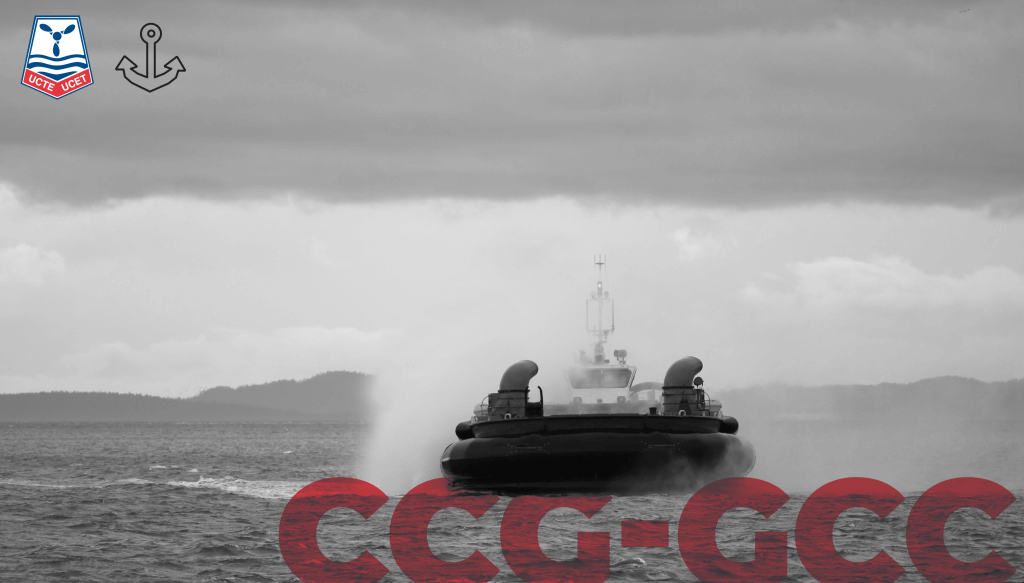Ships Crews Negotiations under the SV bargaining unit
Following our posting of a history about the fight for a separate SC collective agreement on October 23rd, 2020, and as we prepare to face the next round of negotiations with Treasury Board, this article aims to provide you with more information regarding the challenges to be met in getting ship equipment recognized as constituting a separate bargaining unit.
Since the creation of the SV bargaining unit by the federal government in 1999, there have been continued challenges with achieving Ships Crews bargaining objectives. For example, despite some modest market adjustments, Ships Crews continue to be underpaid as evidenced multiple pay studies. Accordingly, the Union has attempted a number of different strategies to attempt to achieve a better contract for Ships Crews members over the years.
Changing the bargaining structure:
Following a successful PSAC convention resolution to attempt to split out the Ships Crews from the SV bargaining unit, PSAC filed an application to split out the ships crews from the SV group. The Public Staff Relations Board issued a decision in 2010 on the application filed by the PSAC seeking to have the Ships Crews group recognized as a separate and distinct bargaining unit. The decision, originally filed in April 2009, came following mediation attempts and finally, a week of hearings in March 2010. At the hearings representatives of the Ships Crews from all regions and both Coast Guard and National Defence appeared before the Board to explain the frustrations SC have experienced in collective bargaining. Using photographs, video and hours of live testimony, the SC members left no stone unturned in explaining the unique nature of their workplace and the extensive variety of their duties.
Ultimately, the decision written by PSLRB Board Member Renaud Paquet determined that a separate bargaining unit could not be granted. In the decision, Paquet acknowledged the diversity of SC work including the SC role in search and rescue, fisheries patrols, navigational maintenance, ice-breaking and scientific missions at sea. He took note of the job risks and of the unique nature of SC work scheduling and leave. The uniqueness of SC work was recognized and appreciated by the Board.
The decision made a detailed assessment of the history of bargaining since the creation of the SV bargaining unit in 1999. Each SV collective agreement and conciliation Board submission was tabled by the union and SC demands and changes achieved were presented to demonstrate that SCs have been frustrated by their minority position in the SV group. Paquet concluded that the SC group had not received its fair share of improvements, but that this inequity was not necessarily due to the structure of the SV bargaining unit.
The decision reviewed the jurisprudence and concluded that there was no clear legal basis to separate the SC group as a distinct unit. The four rounds of SV bargaining that had taken place since 1999 are not conclusive and in fact in two of the rounds there have been circumstances, i.e. threats of legislation or reclassification that distorted the bargaining process. The decision recommends that the union and Treasury Board make renewed efforts to address SC inequities within the existing bargaining structure. To this end the decision identifies five available options for the SC issues to be addressed.
The union took the recommendations made by Board Member Paquet seriously. In response to the decision and the recommendations, we commenced discussions with Treasury Board, Coast Guard and the Department of National Defence on Ships Crew specific issues in order to address the inequities that existed for Ships Crews members.
Ships Crews Bargaining Subcommittee:
Unfortunately, the meetings that happened prior to the 2014 round of SV bargaining were not successful. PSAC came to the table with numerous proposals on issues such as scheduling/crewing, training and compensation but we found that the Employer was not willing to agree to a single proposal. It became clear through that process that the issue was not one of a lack of airtime with the Employer to get them change provisions for the Ships Crews.
That said there has been an appreciation for some time that Ships Crews provisions such as lay days can be complicated and varied. As such PSAC supplemented its bargaining team over the past 14 years with Ships Crews Bargaining sub-committees and extensive work site visits to be able to accurately represent the views and priorities of the Ships Crew membership.
The sub-committee has also been used to assist with pay research. For example, in January 2018, prior to the most recent round of bargaining, the PSAC and the Ships Crews sub-committee met with Treasury Board to discuss the terms of pay study for Ship Crews that would be representative of the work done our members and would be useful for the upcoming round of bargaining. Our finding from this study was that again the data confirmed a gap in compensation between SC positions and comparable jobs outside the federal public service.
Strategies moving forward:
Moving into the next round of bargaining, PSAC will be once again looking to ensure that the architecture of our bargaining process is well suited to be able to accurately articulate the priorities and the challenges faced by the Ships Crews membership. This will be accomplished through a combination of outreach to Ships Crews, the formation of a technical subcommittee, and research support. However, to achieve well-articulated and accurately prioritized proposals, we need leverage. We look forward to working together to harness the collective power within the Ships Crews to achieve our objectives going forward.
